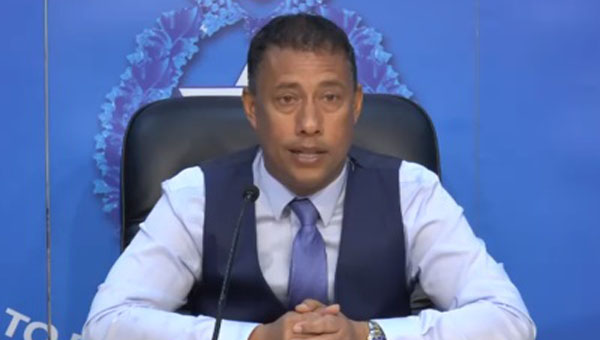PORT OF SPAIN, Trinidad and Tobago, April 24, 2019 (CMC) – Police Commissioner, Gary Griffith, said, today, that social media had become an avenue, for anybody to become an expert “without understanding the facts”, as he hinted at the possibility of adopting a new strategy, in engaging the media in Trinidad and Tobago.
Griffith –speaking at a news conference, where he did not take any questions from reporters — defended the “openness” he has had with the media and the general public, since taking up office, in August last year, and also defended the decision, to re-organise the various units, within the Trinidad and Tobago Police Service (TTPS), despite criticism in the media.
“I have seen the ball being dropped, on a few occasions, with OCIU (Organised Crime and Intelligence Unit). I have spoken to relevant arms, in different agencies in the protective services, and what I intend to do, is to streamline this.
“By doing it like this, it will ensure that there is a better system to measure performance, to make each and every person accountable,” the Police Commissioner said, adding that he had become aware of the “many experts” making pronouncements, without having their facts correct.
“Social media has provided the avenue for anyone to become an expert, in any field, without understanding the facts, and the facts would have shown, what we did was in tandem with what was required,” Griffith said, as he defended the decision to appear, on stage, with Jamaican singer, Buju Banton, last weekend.
“The Trinidad and Tobago Police Service will operate in that manner, to ensure we do our jobs,” he said, adding that he is aware that it very easy to criticise, condemn and to be negative.
“If it is that we want to continue to be a negative and a lawless society, so be it, but I will continue to do what is required, to ensure a degree of safety and security in this country. I will not, in any way, flinch from my duties, as Commissioner of Police,” he stated.
He said while persons seem to know what he should, or should not, be doing as the country’s police leader, “what I am not here to do, is to please any individual”.
“I am here, as a Commissioner of Police for each and every citizen in this country, and if the law-abiding citizens could understand who the real criminal are, they will understand, that by spending all of your time, criticising, condemning (and) undermining the Commissioner of Police…that does not help you, it does not help your loved ones, it does not help the community, it does not help your country.”
Griffith said that he had always been open to the media, and if persons believe he is being seen too much in the media, “I am now paying the price for being accessible to the media”.
Griffith revealed that he gets at least 50 calls from the media, on a daily basis, and is prepared to “Stephen Williams himself”, a reference to the position that had been adopted, by his predecessor, in his relation with the media.
“So from now on, if the media have nothing to do with me, you won’t hear from me. I have no comment to make. Be careful what you ask for, because you might get just that,” he warned.
Griffith has also come under criticism from the Media Association of Trinidad and Tobago (MATT) and the Trinidad and Tobago Publishers and Broadcasters Association (TTPBA), after the police had gone to a media house, here, following a comment, made by one of its senior executives, regarding the people of Tobago.
The TTPBA said that it was seeking clarity from Griffith, following last Thursday’s police search, adding it found the matter “peculiar and very concerning”, while MATT had said that it had been informed that the police had entered the building, without showing the necessary search warrant.
But Griffith countered that it was strange that the media organisations had adopted that position, when the lawyers for the radio station had been querying aspects of the search warrant.
 Pride News Canada's Leader In African Canadian & Caribbean News, Views & Lifestyle
Pride News Canada's Leader In African Canadian & Caribbean News, Views & Lifestyle





